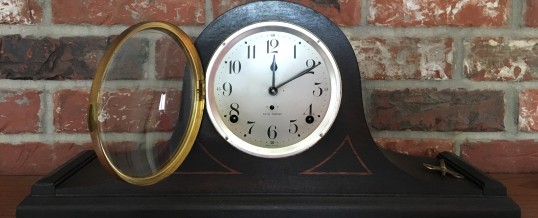
I read something recently that was a bit disconcerting. Someone was offering a class to teach children how to tell time.
Think about that.
We’ve simplified the most basic things to the point where children, the very group of people that we will all rely on to run the country and our nursing homes when we reach old age, can’t read a watch or a clock.
Sure, kids, or anyone else for that matter, can look at a cellphone or a digital device and know what time it is. But, they can’t read the face of an analog clock.
On the surface, this may seem like no big deal, but this is the latest in a trend of basics that someone, somewhere along the way, decided wasn’t important enough for our children to learn.
Children are not being taught the most rudimentary of abilities that we all learned and take for granted.
A few years ago, I heard that cursive writing was no longer being taught in schools. I suspected (incorrectly, it seems) that maybe that was a voluntary thing. Now, I’m hearing that kids are being dinged or chastised for using cursive.
My generation was taught typing. That is now called keyboarding. Don’t get me wrong, typing is one of the most valuable skill sets I acquired in high school. For young people now, that’s no different. But, what happens when the electricity goes off?
There’s nothing wrong with printing as a form of writing, but cursive is a much faster means of communication. I can remember spending hours in third and fourth grade practicing cursive. I was never very good at it, and I’m still not, but cursive used to be an art form.
Look at the United States Constitution and the Declaration of Independence. James Madison and Thomas Jefferson, respectively, painstakingly used a quill pen and ink to write out, in cursive, what are two of the most important documents that history has ever seen.
Good penmanship used to be a point of pride, and it was often beautiful.
Computers have not only all but eliminated writing by hand from our kids’ list of abilities, they’ve also all but omitted the need to go to the library. The hours that my age group spent learning the Dewey Decimal System as a pathway to research and expand our knowledge has been replaced by websites that may or may not be reliable sources of information.
A few years ago, I went to our local book repository to sign my wife and myself up for library cards, and even donated some books while I was there. Each time I’ve visited since, the youngest person there was the lady working the counter.
Young people aren’t learning how to find their own information. They rely almost solely on an electronic device and Google. I’m guessing that if you asked someone under age 30 if they could tell you about Funk and Wagnalls, they’d guess that they were a Hip Hop group.
Reading a map is also being lost to time. It wasn’t so long ago that a trip of any length first required stopping at a Texaco or Shell station to buy road maps or a road atlas of the states that connected you to your destination. Now, people blindly trust some unseen lady named Siri who lives inside our cellphones to tell us where to go, turn and stop.
These same electronic devices have also essentially crippled us, should we actually have to remember someone’s phone number. Keeping an address book (in pencil) was once standard in every household. We referenced them for numbers we called infrequently, but most people that we called, we remembered their numbers.
Today, young and old alike simply have to touch the name of the person we want to call on our cell, and we no longer learn, or we have forgotten their phone number.
We have arrived at a place that is somewhat frightening. Fewer of us know how to do for ourselves. We blindly rely on a system of communication and information that, should someone flip off its switch tomorrow, most of us not only have no backup system, a vast chunk of society wouldn’t know how to use it if they did.
The best favor we can do for young people is to show them some basics. Before time runs out.
©2017 John Moore
For more of John’s musings, visit johnmoore.net/blog
MAR
2017
